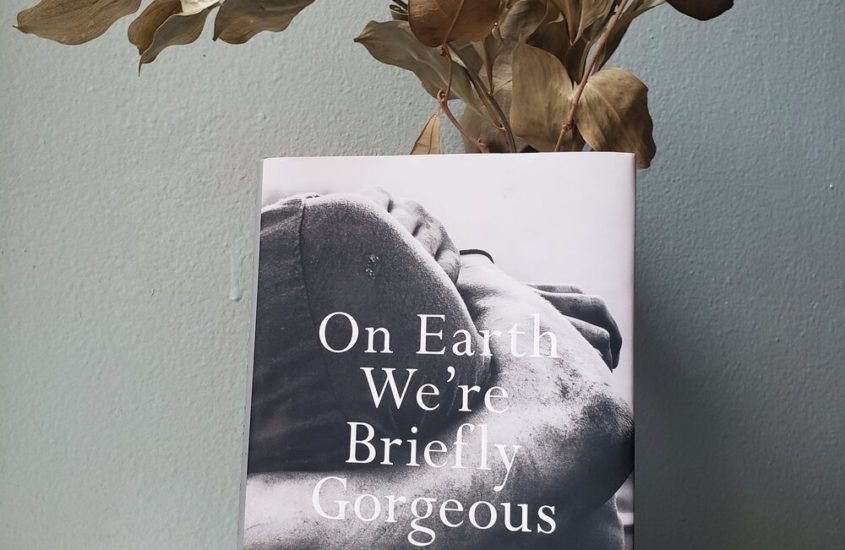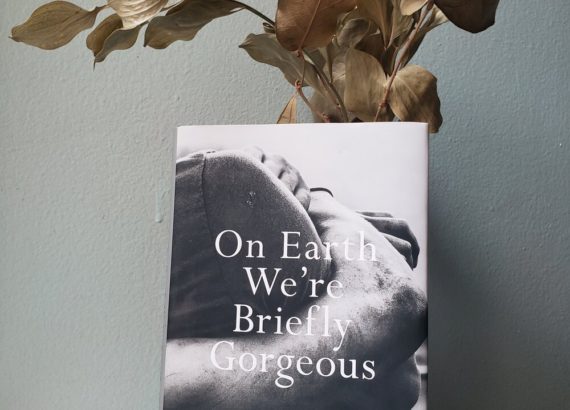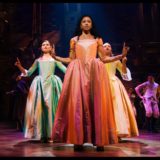‘On Earth We’re Briefly Gorgeous’ Review By: Sayantika Mandal


For some books, you are not looking for the ending of a story. You know how the story ends, but you still want to read the pages. You want to immerse yourself in the sprawling glory of each exquisitely carved sentence, as if they are fine-cut jewels you are observing, waiting for the light to play on every edge, to remember every tint, every gorgeous shade of color. Ocean Vuong’s On Earth We’re Briefly Gorgeous is that kind of a book.
As I read it for Pride Month, I savored each sentence and pondered on every little image and the deep inside did not want this to end.
Widely acclaimed as a prominent emerging voice, Vuong is known for his poetry collection Night Sky with Exit Wounds. His debut novel is the handiwork of a poet who looks deeper and deeper into memories and absolves meaning out of every little phenomenon. Written in the form of a letter to his mother and closely resembling some events of his own life, this immigrant novel of growing up queer in Hartford, Connecticut, is more than the protagonist Little Dog’s life but about survival.
Survival of women in Little Dog’s family, his mother, and grandmother, amid the Vietnam War, trauma, violence, grief, poverty, is the key thread that strings a series of vignettes together. These vignettes take the reader from the pea soup-colored walls of his room with his schizophrenic grandmother, to the nail salon where his mother works and to the barn in the middle of a tobacco field where Little Dog has sex with Trevor, to the streets of Saigon. Each vignette took me to the depths of the experience in microscopic proximity as if he holds them like a leaf in his hand and examines the intricate network of veins. Savoring these moments in its entirety is what the author is aiming for. In a conversation with Tommy Orange for City Arts and Lectures, Vuong says that he gave up the plot to achieve the proximity and was influenced by the Japanese art of narratology called kishōtenketsu. He takes apart each detail with the precision of a scientist and what we get is a book laden with emotion. And yet, we do get the story in this unusual form full of digressions, as everything fits together in the end like a complex and layered jigsaw puzzle.
One of the key themes raised in this book besides pain and trauma is masculinity and Americanness. As Little Dog maneuvers his body in a space saturated with white supremacy, he realizes that every time he steps out of the norms set for masculinity, he must pay a price, be it following a friend around in school, or riding a pink bicycle, and even in his relationship with Trevor who believes that being gay is a passing phase. The idea of masculinity and violence is intertwined and Vuong pushes the boundaries of language with wordplay to question this relationship.
Vuong’s poetic acumen is displayed in the exceptional animal imagery that he braids the narrative with. He parallels the lives he describes with buffaloes running off a cliff, of macaque monkeys, and the most glorious image of all, the monarch butterflies, their stories of migrating and dying; it is only the next generation who comes back to the homeland, paralleling his family’s story.
Pick this book if you are looking for not just a read, but an experience.




Amelia
Have you ever considered writing an e-book or guest authoring on other blogs?
I have a blog based on the same ideas you discuss and would really like to have you share some stories/information.
I know my audience would enjoy your work. If you’re even remotely interested, feel free to shoot me an email.
Here is my website; Buy CBD